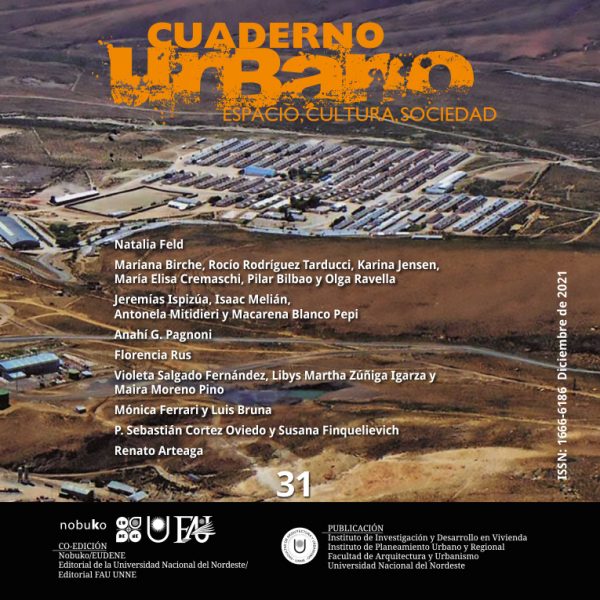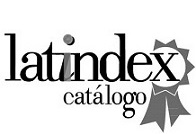Public policies and citizen participation. Analysis of three state programs implemented in a popular neighborhood of Mar del Plata (2018-2020)
DOI:
https://doi.org/10.30972/crn.31315779Keywords:
Popular habitat, public policies, co-management, citizen participationAbstract
This paper presents the results of the analysis of three state programs implemented in a sprawling poor neighborhood in Mar del Plata city. It arises in the context of broader research on social technologies and popular habitat in highly excluded territories, where the research group actively participates in the processes it studies. Three axes are linked: the analysis of public policies, alternative management and popular urbanization with the aim of investigating the different forms of management of each experience. For this purpose, the different actors involved, their interactions and the ways of linking with civil society are characterized. Reflecting on this issue contributes to thinking about socio-urban integration policies in contexts of poverty with greater anchorage in local territorialities. The techniques and methods used for work in the territory are based on the identification of problematic situations and alliances between social actors to co-construct problem-solution strategies.
Downloads
References
Cacopardo, F.; Rotondaro, R.; Blanco Pepi, M.; Cacopardo, G.; Freire, P.; Ispizúa, J.; Melián, I. & Mitidieri, A. (2018). Tecnologías sociales en territorios urbanos pobres. Barrio Nuevo Golf, Mar del Plata, Argentina (2010-2018). Redes. 24(47), 227-262. https://revistaredes.unq.edu.ar/index.php/redes/ article/view/37
Cravino, M. C. & Varela, O. (2010). Mil nombres para mil barrios: asentamientos y villas como categorías de análisis e intervención. En M. C. Cravino (Ed.), Los mil barrios (in)formales: Aportes para la construcción de un observatorio del hábitat popular del Área Metropolitana de Buenos Aires (pp. 45-64). Los Polvorines, Argentina: Universidad Nacional de General Sarmiento. https://periferiaactiva.files.wordpress.com/2015/06/los-mil-barrios-cravino-final.pdf
Gargantini, D.; D’Amico, D. & Martiarena, M. (2018). El gobierno del suelo urbano: representaciones y estrategias de articulación-acción de los actores estatales. Revista Territorios (38), 119-136. https://doi.org/10.12804/revistas.urosario.edu.co/territorios/a.5285
Mitidieri, L. A.; Ispizúa, J. & Blanco Pepi, M. (2019). Estrategias de gestión y redes de interacción en la urbanización popular. Barrio Nuevo Golf, Mar del Plata, Argentina. Segundas Jornadas de Sociología UNMDP. https://fh.mdp.edu.ar/encuentros/index.php/jsoc/jsoc2019/paper/view/5608.
Oszlak, Oscar & O’Donnell, Guillermo (1995). Estado y políticas estatales en América Latina: hacia una estrategia de investigación. Redes, 2(4), 99-128. https://www. redalyc.org/articulo.oa?id=907/90711285004.
Oszlak, O. (2009). Implementación participativa de políticas públicas: aportes a la construcción de un marco analítico. En Belmonte, Alejandro (et al.). Construyendo confianza. Hacia un nuevo vínculo entre Estado y Sociedad Civil, Volumen II (pp. 9-47). Fundación CIPPEC. https://www.cippec.org/wp-content/ uploads/2017/03/1753.pdf
Pelli, V. (2007). Habitar, Participar, Pertenecer. Acceder a la vivienda-incluirse en la sociedad. Nobuko.
Peyloubet, P. (2012). Hacia una Base Cognitiva Democrática - Debate, Construcción y Operacionalización del Conocimiento Colectivo en el Campo del Hábitat. En Peyloubet, P. (Ed.), Co-construcción interactoral del conocimiento (pp.153- 170). Nobuko. https://coconstrucciondelconocimiento.files.wordpress. com/2015/06/const_int_conoc.pdf
Peyloubet, P. (2014). Del rango epistémico al saber de sentido común. Revista de Antropología Experimental, 0(14), 55-81.
Peyloubet, P. (2017). Animarse a habitar. Diseño.
Pirez, P. (1995). Actores sociales y gestión de la ciudad. Ciudades, 28, 1-12. RNIU.
Pirez, P. (2015). Servicios urbanos y urbanización popular: mercantilización y desmercantilización. En Bolivar, T.; Rodríguez, M. & Erazo, J. M. (Ed.), Ciudades en construcción permanente ¿Destino de casas para todos? (pp. 55-79). CLACSO.
Subirats Humet, J.; Knoepfel, P.; Larrue, C. & Varone, F. (2008). Análisis y gestión de políticas públicas. Ariel.
Thomas, H.; Fressoli, M. & Santos, G. (2012). Tecnología, desarrollo y democracia: nueve estudios sobre dinámicas socio-técnicas de exclusión/inclusión social. Ministerio de Ciencia, Tecnología e Innovación Productiva e Instituto de Estudios sobre la Ciencia y la Tecnología, Universidad Nacional de Quilmes (IESCT-UNQ
Downloads
Published
Issue
Section
License
CUADERNO URBANO sustains its commitment to the Open Access policies for scientific information, on account of the fact that both scientific publications and public funded research must circulate freely on the Internet and without restrictions.
CUADERNO URBANO ratifies the Open Access model in which the contents of scientific publications are available in full text free of charge on the Internet, without temporary embargoes, and whose editorial production costs are not transferred to the authors. This policy proposes breaking down the economic barriers that generate inequities both in access to information and in the publication of research results.





.jpg)








